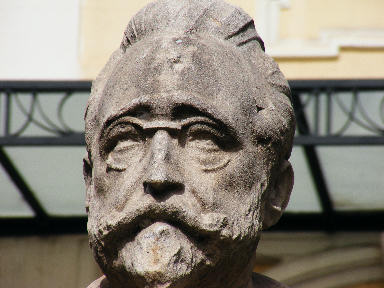LIFEWORLD (Term from sociology, philosophy and anthropology)
|
|
|
|
|
|
|
|
|
|

![]()
DOING TIME TAKING TIME OUT
| The present moment is a moment of intersubjective lived experience - the mundane, modern, routinised life. |
| It is lived nonconsciously on the level of implicit, rather than explicit, experience. |
| It is not conscious, verbalized, or verbalizable, experience. Or can we study the Lifeworld through introspection and consciousness? |
| The presentness of lived experience is central. |
| See Phenomenology (philosophy) - the consciousness, rather than the unconscious is the key mystery - the individual's being-in-the-world |
| Everyday life has purposiveness. Our actions are directed at goals. We have conscious awareness, and organise our thoughts and actions. Winning and losing. |
| Motivation is the set of reasons that determines one to engage in a particular behavior. (Wikipedia) |
| Cognition is the scientific term for 'the process of thought', 'understanding and trying to make sense of the world'. (Wikipedia) |
| 'Everyday studies' (research on the 'everyday') defies traditional university research methods? These latter demand that research be useful and profitable. |
Mind - Emotions (affective) - Everyday - EMBODIED/SITUATED
| We depend on 'affective know-how' - how one expects social exchanges to proceed. (Sheredos) |
| The familiarity of things is partly constituted by a bodily feeling. It is dependent on on affective know-how - felt expectations of bodily feelings, gleaned from prior experiences in similar situations. (Sheredos & Ratcliffe) |
| Background feelings are an internal report of bodily familiarity. |
| BODILY FEELINGS: (1) consciousness awareness of bodily changes that occur during emotions (muscle activity, autonomic nervous system responses, and hormonal changes); (2) 'feeling-towards' phenomenally-charged psychological attitudes (Goldie) |
|
Goldie, P., 2000, The Emotions. New York: NY, OUP Goldie, P., 2002, 'Emotions, Feelings, and Intentionality' Phenomenology and the Cognitive Sciences, 1:235-254 Ratcliffe, M., 2004, 'Interpreting Delusions', Phenomenology and the Cognitive Sciences 3: 25-48 Sheredos, Benjamin, 2009, Embodied Delusions and Intentionality. In [2009] Southern Society for Philosophy and Psychology, 101st Annual Meeting (Savannah, GA April 9-11). http://philsci-archive.pitt.edu/archive/00004530/
Can we say that all lives, works, and deeds that matter were
never anything but the undisturbed unfolding of the most banal,
most fleeting, most sentimental, weakest hour in the life of
one to whom they pertain? When Proust in a well-known passage
described the hour that was most his own, he did it in such a
way that everyone can find it in his own existence. We might
almost call it an everyday hour. Boothroyd, Dave, 'DECONSTRUCTION AND EVERYDAY LIFE, OR HOW DECONSTRUCTION HELPED ME QUIT SMOKING' http://culturemachine.tees.ac.uk/Cmach/Backissues/j006/Articles/boothroyd.htm
EXCERPT Heidegger at the Hearth of Heracleitus This anecdote was told first by Aristotle (De part.anim. AS, 645a17) and then again by Heidegger in the 'Letter on Humanism', a text reflecting on the question of the relationship of philosophical thought to action; to ethics and political practice. It concerns a moment in the everyday life of Heracleitus and it goes like this: Some 'strangers' who had heard of Heracleitus and of his ideas decided to track him down and pay him a visit in his home. Heidegger citing Aristotle: 'Having arrived they saw him warming himself at a stove. Surprised they stood in consternation - above all because he encouraged them, the astounded ones, and called for them to come in with the words "here too the gods are present" (1976: 233)'. The visitors were surprised and disappointed to find 'the great thinker' in the very ordinary pose of an ordinary man. Heidegger then embellishes, emphasising that he was found 'not even baking bread at the stove'; not doing anything in effect, simply warming himself; engaged, that is dis-engaged from thought, in 'such an everyday and unexciting occurrence: doing almost nothing' (1976: 234). Heidegger retells the anecdote in a text concerned centrally with the relationship between theory and practice, and it serves his discussion about human action (praxis) in a world in which the actor must act 'without guarantees'; in which there is, according to Sartre, 'reality only in action' (cited by Krell, 1976: 55). ........................... The story about Heracleitus illustrates this in anecdotal,
everyday form: it recalls just how unknown the simplest, most
immediate and banal of 'actions' are, when seen only from within
an everyday perspective. Heracleitus' remark to the visitors
is a noting of what emerges out of the difference inherent in
the everyday act, between itself and what is other within it.
It records in effect, albeit in fictional illustration, an instance
of the disjuncture of the everyday with itself; how the everyday
act is never merely what it knows itself to be. It says 'do not
too easily presume to know even what hand-warming is'. Anderson, Norman, 1996, 'Cognitive Theory of Every Life', Chapter 1, A Functional Theory of Cognition, Lawrence Erlbaum Associates, New Jersey A partial list of everyday concepts will illustrate the broad field for study: Psychophysical sensations such as sweetness and loudness. Lefebvre, Henri, 1971 [1968], Everyday Life in the Modern
World, trans. S. Rabinovitch, New York: Harper and Row. De Certeau, Michel, 1984, The Practice of Everyday Life, trans. S. Rendall, Berkeley: University of California Press Highmore, Ben, 2001, The Everyday Life Reader, London: Routledge Highmore, Ben, 2002, Everyday Life and Cultural Theory, London:
Routledge
How to analyse the Lifeworld? Everydayness is the space of all spaces, the life of all the lived. Morris, Meaghan, 1990, 'Banality in cultural studies', in
P. Mellencamp (ed.) Logics of Television, Bloomington: Indiana
University Press: 14-43. |
|
|





